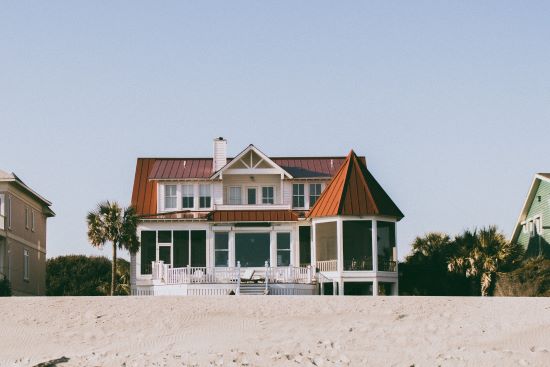Are You Ready for a Second Home?

Whether you’re looking for a home in a resort community like Daytona Beach, or maybe you’d like something quieter and not in a tourist-centric location, buying a second home is a big commitment. You might be thinking about it, but is it a commitment you’re ready for?
In 2018, the National Association of Home Builders reported there were 7.5 million second homes throughout the country. The majority were in Florida, as well as California, New York, Texas, Michigan, and Arizona.
 The following are some things to consider as you weigh whether or not you’re ready for a second home.
The following are some things to consider as you weigh whether or not you’re ready for a second home.
1. The Financial Impact
Before you buy a second home, it’s important to have a full overview of the complete financial impact. You’re getting the brunt of the financial impact fully on your shoulders, and you’re going to have this happening twice. If you have a problem at your main home that’s expensive to fix, and then there’s an issue with your second home, that’s back-to-back bills you’re going to be facing.
Even outside of situations where things go wrong, you’re going to have your second mortgage payment, which will include your homeowner’s insurance and property taxes, upkeep, utilities, HOA fees, travel costs to get to the home, and rental management fees if you’re going to rent it out.
You need to make a detailed budget and include contingencies. For example, will you need flood insurance, and if so, how much will that cost?
Some questions to ask yourself before you decide on a second home will include whether you’re currently able to save at least 15% of your current income for retirement. Is that something you’ll be able to continue to do comfortably, even with the added expenses of a second home?
Do you have a minimum of six months of your expenses in an emergency fund that’s liquid and easily available? Even better is nine months.
Do you have any credit card debt? Is your current home paid off?
If you can check these boxes, then you might be in a position where you can really think about a second home.
2. How Second Mortgages Work
If you’re still paying off the original mortgage on your primary residence and you want to buy a second home, you’ll need a second mortgage. This could be an actual second mortgage, or it could mean you get a home equity loan for your current home or a home equity line of credit on your current home. You might also do a cash-out refinance from your current home.
Banks are going to look at the same factors they would for any loan, like whether you have adequate income to cover the costs, your credit report, income, assets, and employment history.
3. Travel Considerations
Are you going to enjoy your second home for the long term? Is the travel time to get there going to feel like a burden quickly?
Do you want to be tied to one place for the long term?
You have to realize if you buy a second home that, this is going to impact your ability to travel to other places. If you know that you love traveling to the same place year after year, that can be great. If you want a second home and to continue traveling to other places, your budget might not allow for it.
You have to remember that a vacation home is still a home, so you need amenities that are accessible. For example, are there grocery stores and restaurants nearby? What about gyms or other things that you use in your daily life?
4. Are You Going to Rent It Out?
If you can rent out your second home, you might be able to cover its costs and then some.
That’s not always an easy feat, either, though. For example, the laws as to whether or not you can rent out a home vary by state, city, and sometimes even the neighborhood. In New York City, as an example, putting your home on Airbnb is illegal unless the resident is living in the apartment or it’s being rented out for over 30 days.
If you’re looking at a condo as your second home, you have to determine what the bylaws say about short-term rentals.
Some communities will have a restriction requiring a minimum of 90-day rentals with previous association approval of the renter.
If you are able to rent out a home, you have to think about the costs that will come with doing so. For example, you’ll need appropriate insurance, and you’ll have to budget for maintenance and cleaning services.
If you’re going to rent out a second home, the times you’ll most want to be there are going to be the most in-demand times from renters, more than likely. You will have to decide whether the income is more important or whether your ability to enjoy your second home is your main priority.
5. Taxes
If you have a second home, it will be classified by the IRS as a personal residence or rental property. If you rent it out 14 days or fewer than that per year, it’s a personal residence. If you rent it out for over 14 days, it’s a rental property. You’ll have to report your rental income, no matter the classification.
If your vacation home is categorized as a rental property, you can’t claim a mortgage interest tax deduction, but if you spend more than the rental income, you can claim losses.
6. Is It a Good Investment?
If you’re going to purchase a second home, you might want to think about whether or not it’s a good long-term investment.
While real estate does tend to be a good investment, that’s not always true. There are housing fluctuations and even crashes, so can you weather a situation where your home might decline in value by as much as 30%?
If your equity was wiped out, would you have to foreclose?
The most important thing to do if you’re considering a second home is to run the numbers. Then, you want to make sure you’ve factored in all the potential costs but also your lifestyle and personal preferences before you make this big decision.



